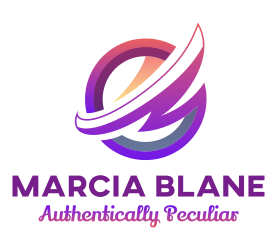Feeding More Than Hunger | How Trauma Shapes Our Relationship With Food
Sometimes, it’s not about the food at all.
You’re not just reaching for a snack, you’re reaching for relief. You’re not just skipping meals, you’re trying to stay in control. What we call “emotional eating,” “overeating,” or even “not eating” is often so much deeper. It’s a story of survival, stored in the body.
This post is a gentle exploration of how trauma can shape our eating behaviors, not as dysfunction, but as an intelligent attempt to feel safe. Let’s stop shaming the coping and start honoring the body’s wisdom.
Food as Safety, Not Just Fuel
For many trauma survivors, food becomes more than just nourishment, it becomes protection. It’s the warm blanket at the end of a hard day, the one thing you can control in a life that’s felt chaotic, or the soothing mechanism for emotions too big to name.
Trauma disrupts our internal sense of safety and regulation. That includes hunger cues. That includes fullness. That includes trust in others, in our bodies, and in ourselves.
So when food enters the picture, it’s not just meeting a physical need.
It’s often meeting an emotional one.
Clinical Insight: Studies show that early childhood trauma is strongly linked to disordered eating patterns in adulthood, including binge eating, restriction, and chronic dieting (National Eating Disorders Association).
Eating and the Nervous System
When your nervous system is stuck in fight, flight, or freeze, your eating habits may mirror that state.
In fight, you may eat fast and mindlessly, always bracing for the next threat.
In flight, you may restrict or avoid food as a way to feel in control.
In freeze, you may feel numb to hunger or fullness entirely.
This isn’t about willpower or discipline.
It’s about survival.
Felice Martin said it beautifully at the Black Women Breakthrough Conference:
"You’re not overreacting, you’re reacting from a nervous system shaped by your experience."
Understanding your body’s cues through a trauma-informed lens changes everything.
The Shame Loop
Now let’s talk about the guilt that creeps in after the behavior.
Maybe you ate a whole bag of chips and now feel ashamed. Or maybe you skipped meals for days, then binged at night, then berated yourself in the mirror.
Here’s what I need you to hear:
The behavior is not the problem.
The shame around the behavior is where the harm compounds.
Shame disconnects us from our bodies.
Compassion invites us back.
When we stop asking, “What’s wrong with me?” and start asking, “What am I needing?”—we shift from judgment to healing.
What Are You Really Hungry For?
Sometimes hunger isn’t about food.
It’s about comfort, belonging, rest, or peace.
If you’ve never had a safe, consistent relationship with food or with your body, it makes sense that eating feels emotionally charged. It’s not just nourishment, it’s a mirror reflecting how safe you feel in the world.
Reflective Questions:
When do I eat most emotionally?
What am I usually feeling right before I reach for (or avoid) food?
What did food represent in my childhood? Reward? Comfort? Control?
These aren’t easy questions, but they’re necessary ones.
Pathways Toward Healing
Healing your relationship with food isn’t about rigid diets or control. It’s about reconnection to your body, your needs, and your story.
Some gentle ways to begin:
Practice body curiosity, not body control. Ask what your body needs instead of forcing it to perform.
Ground before meals. Take a few breaths, place your hand over your belly, and invite presence.
Challenge shame. If a critical voice shows up, ask: Who taught me that? And is it still true?
Seek culturally affirming, trauma-informed support. You deserve care that honors your full story.
You Are Not Broken. You Are Adaptive.
Food might have been one of the few things that brought you comfort in a world that didn't feel safe. That doesn’t make you weak. That makes you resourceful.
You’re allowed to heal at your own pace.
You’re allowed to have complicated feelings about food.
You’re allowed to take up space, emotionally and physically.
Your body is not your enemy. It’s your storyteller.
And it’s been trying to keep you safe all along.
Want to go deeper?
Check out this podcast episode: “Trauma and the Relationship With Food”
We explore the emotional roots of eating behaviors and what healing can really look like.
Listen here: https://youtu.be/idnh22wOsU4
Written by Marcia Blane, LPC, NCC, C.Ht.
Licensed Mental Health Counselor | Trauma-Informed Life Coach | Clinical Hypnotherapist
www.marciablane.com

